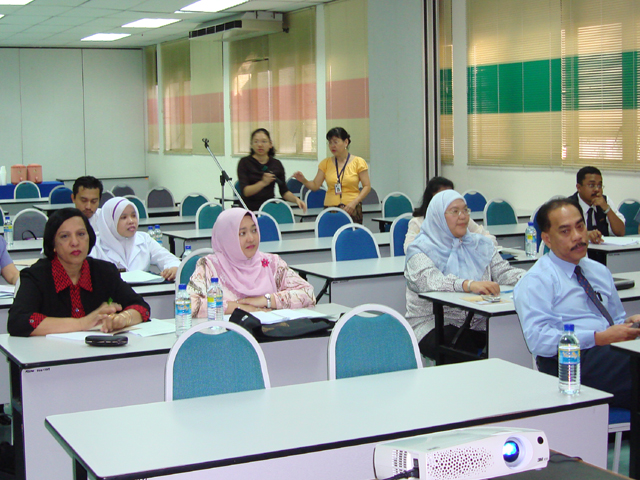The training for enumerators for the Smoking Cessation Programme was held to brief and train research assistants, doctors, nurses and medical assistants from the Quit-Smoking Clinics, Ministry of Health, Malaysia.
It was officiated by Dr Salehuddin bin Abu Bakar, the Deputy Director, Department of Health, Wilayah Persekutuan. Associate Professor Dr Awang Bulgiba Awang Mahmud as the Head of Social and Preventive Medicine Department, Faculty of Medicine, University of Malaya, was the host of this training. It was held on 27 June 2007 in the Department of Social and Preventive. The Principal Investigator for this research is Miss Wee Lei Hum.
The training was conducted to carry out the prospective study on smoking cessation in five Quit-Smoking Clinics which are Tanglin Clinic, Jinjang Clinic, Pantai Clinic, Kampung Pandan Clinic and Putrajaya Hospital. The training programme consisted of the following topics:
- The introduction to the PRIME Theory and briefing on the research
- Interview techniques and qualitative analysis
- Data entry and quantitative analysis
- Briefing on the interview schedules and applications of the PRIME Theory
The presentation on the application of PRIME Theory was delivered by Professor Robert West the Head of Health Behaviour Research Center, Department of Epidemiology and Public Health, University of College London, United Kingdom. This was the first time the department has used Skype, a video conferencing software for the online session between the United Kingdom and Malaysia.
PRIME Theory
PRIME Theory is a first attempt to develop a comprehensive theory of human motivation that explicitly seeks to encompass the full range of observations using a language that is as close as possible to everyday usage. The theory proposed five levels in the motivational system:
- Plans
- Responses
- Impulses
- Motives, and
- Evaluations
The theory has four other themes:
- The focus on ‘the moment‘,
- ‘dispositions and the role of experience‘,
- the importance of ‘identity‘, and
- the application of ‘chaos theory‘.
Stopping smoking is a ‘chaotic’ process involving a change in identity in the face of momentary impulses, motives and evaluations arising from pharmacological and non-pharmacological influences.





















You must be logged in to post a comment.